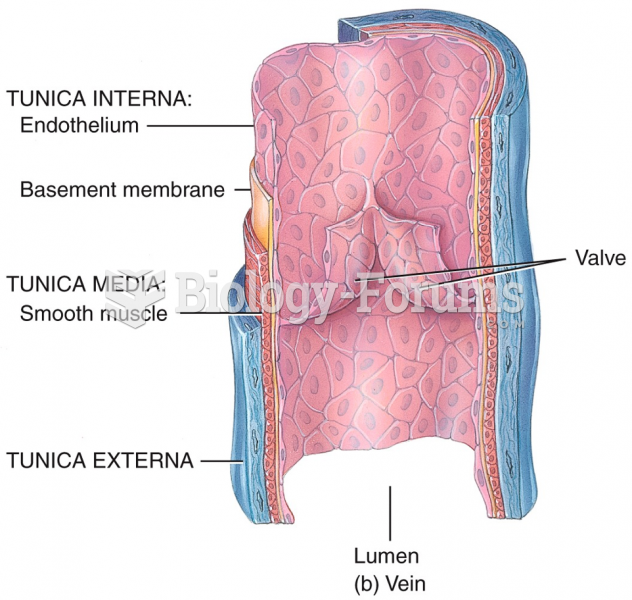|
|
|
Side effects from substance abuse include nausea, dehydration, reduced productivitiy, and dependence. Though these effects usually worsen over time, the constant need for the substance often overcomes rational thinking.
The use of salicylates dates back 2,500 years to Hippocrates's recommendation of willow bark (from which a salicylate is derived) as an aid to the pains of childbirth. However, overdosage of salicylates can harm body fluids, electrolytes, the CNS, the GI tract, the ears, the lungs, the blood, the liver, and the kidneys and cause coma or death.
Human neurons are so small that they require a microscope in order to be seen. However, some neurons can be up to 3 feet long, such as those that extend from the spinal cord to the toes.
Pubic lice (crabs) are usually spread through sexual contact. You cannot catch them by using a public toilet.
Multiple sclerosis is a condition wherein the body's nervous system is weakened by an autoimmune reaction that attacks the myelin sheaths of neurons.
 An exceptionally well preserved trilobite from the Burgess Shale. The antennae and legs are preserve
An exceptionally well preserved trilobite from the Burgess Shale. The antennae and legs are preserve
 Lie prone with your head turned to one side. Put your arms out to your sides and bend your elbows at ...
Lie prone with your head turned to one side. Put your arms out to your sides and bend your elbows at ...





